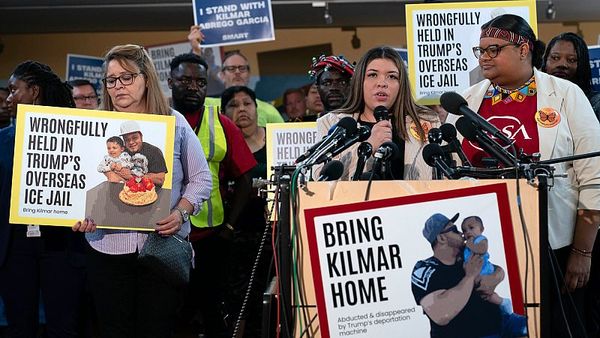
Every streaming service has to have its own romantic anthology programme: this is the law. Netflix has a dozen of them. Prime has Modern Love. There’s that one where Dave Franco is always getting angry and making craft beer. They all have one-word titles, unless they have a two-word title, in which case one of those words has to be “love”. They all have a scene where, after flirting in a bar, a very good-looking couple go out to a late-night food stall and eat something while standing up. That, the streaming platforms tell us, is what love is. It’s a chewy slice of pizza, eaten laughing at 1am, while being watched as you glow gorgeously through a window.
The second series of Love Life, then, which is HBO Max’s version (also available on iPlayer and Netflix, where it joins Love, Life & Everything In Between, Lovesick, Love Hard, Sex/Life and, of course, just Love), and the best of the lot. The first series took 10 episodes to explain why Anna Kendrick wasn’t married, while the second follows William Jackson Harper as he consistently says the wrong thing to the wrong person at exactly the wrong time.
What Love Life does so well is make those small-to-an-outsider, huge-to-an-insider moments of a relationship look large on the screen: a “you’re being weird” chat on the subway after a long night out; a “this is my girlfriend” introduction that doesn’t feel right; forgetting you’ve connected your phone’s iMessages to your shared iPad even though you came home holding flowers. Giving 10 episodes over to one person’s half-decade or so of romantic misadventure inverts the romcom tropes in a very satisfying way: it’s less “Here’s the bad boyfriend, and here’s the love of your life. The End” and more “Here’s the person who wasn’t quite right, here’s the person you were very embarrassing in front of, here’s the person who was very embarrassing in front of you, and here’s the person you’ll marry for a bit but shouldn’t have. The … End?”
While the first series was very good, it did occasionally stutter: there were slightly too many scenes where someone looks sad on a train late at night, and sometimes the Voice of God narrative track found a bit too much significance in someone in public being dressed nicely. The second series is more refined, and it helps that Harper is great.
In the first episode, as you see his married Marcus tiptoe around having an overwhelming crush on another woman, you experience every illicit half-betrayal he commits: the too-friendly-too-often text messaging, the showing her Instagram account to his friend to try to impress him, the bit where he talks himself into having marriage trouble and that this is his only way out. At every turn, the show resists the urge to have a character shout: “Ugh … I’m just so sick of apps!” before meeting their soulmate in a coffee shop literally seconds later. There are some convenient friendship overlaps, but never a corny “So how did you two meet?” “Oh, I bumped into her while she was holding a load of smoothies.” This is what happens when you give a romcom storyline the years it needs to breathe.
What do we, the viewer, get out of this? There must be a voracious demand for these shows: that’s why there are so many of them, right? My theory isn’t complicated, but still: we just like watching good-looking actors with good chemistry fall in love a bit. The current trend for anthology series gets to take that a bit further – here are some good-looking people with good chemistry falling in love a bit, sure, but also here’s the same good-looking actor sitting at a bus stop crying because they can’t figure out what to type in a text.
This won’t be the last of them. There is always another Quibi, another Peacock TV, another BritBox round the corner; all of them, legally, need their anthology series. But for now, Love Life is the best example of how love on screen can be interesting and not saccharine, a densely textured antidote to Bridgerton’s cartoonishly breathless romance. Sometimes, searching for love is just about some guy wearing a very brave hat in a bar before going home alone and sending a risky DM. Every streaming platform is determined to remind us of this.







